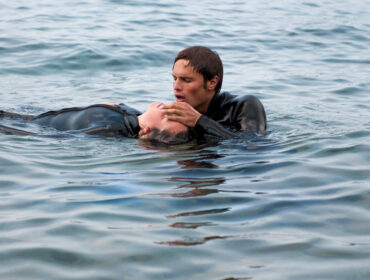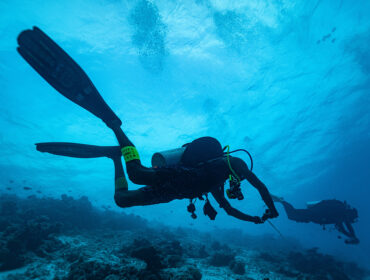Decompression sickness, which is commonly referred to as DCS or “the bends,” is a condition that occurs when nitrogen bubbles form in certain parts of the body. This happens when a person, usually a SCUBA diver, experiences decompression too quickly due to rapid changes in pressure. Symptoms of decompression sickness may appear right away, or they may manifest several hours later. These effects can vary depending on what part of the body is affected, but there are three major symptoms that can usually be observed.
The most common symptom of decompression sickness is joint pain. This happens when the gas bubbles either form in or migrate to various joints. The most commonly affected joints are the knees, ankles, shoulders and elbows. The number of joints affected varies from person to person. The pain associated with the bends usually feels like a dull ache, but can be much more severe, like a stabbing sensation.
This painful sensation can also occur in other parts of the body, including the ear, the spinal cord, the lungs, the brain or the skin. When gas bubbles occur in the spinal cord, paralysis or loss of motor skills may accompany the pain. When the bends affects the skin, the pain may be accompanied by an extreme itching sensation. Skin can also take on a swollen, marbled or pitted appearance.
Another symptom of decompression sickness is headache. This ache can be very severe, or can be a milder, throbbing sensation. These headaches may also bring nausea, confusion, loss of balance, dizziness or visual distortions such as double vision. In extreme cases, loss of memory may occur. How severe the headache and its related symptoms are depends on what part of the body is affected. Generally, these symptoms are most common in people who are experiencing the bends in the brain or throughout the entire body.
The third major symptom of the bends is a feeling of fatigue. This can happen in both extreme and mild cases of the condition. People will feel tired and will often experience body aches. These symptoms may seem much like a bad case of the flu, as most people simply feel sick and worn out.
Decompression sickness is treated with hyperbaric oxygen therapy, which is administered in a recompression chamber. After treatment, most patients experience a complete lack of symptoms, and there are rarely any long-term affects. If you feel like you might be experiencing any symptoms of DCS, be sure to seek medical attention right away.
Images via Marion Doss, The Diver Clinic






